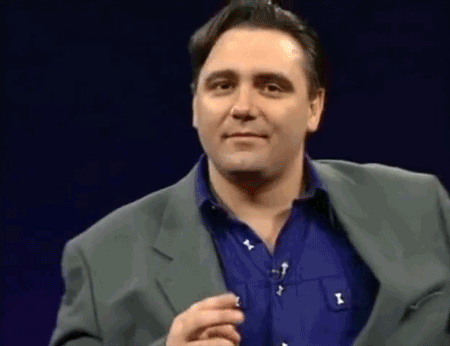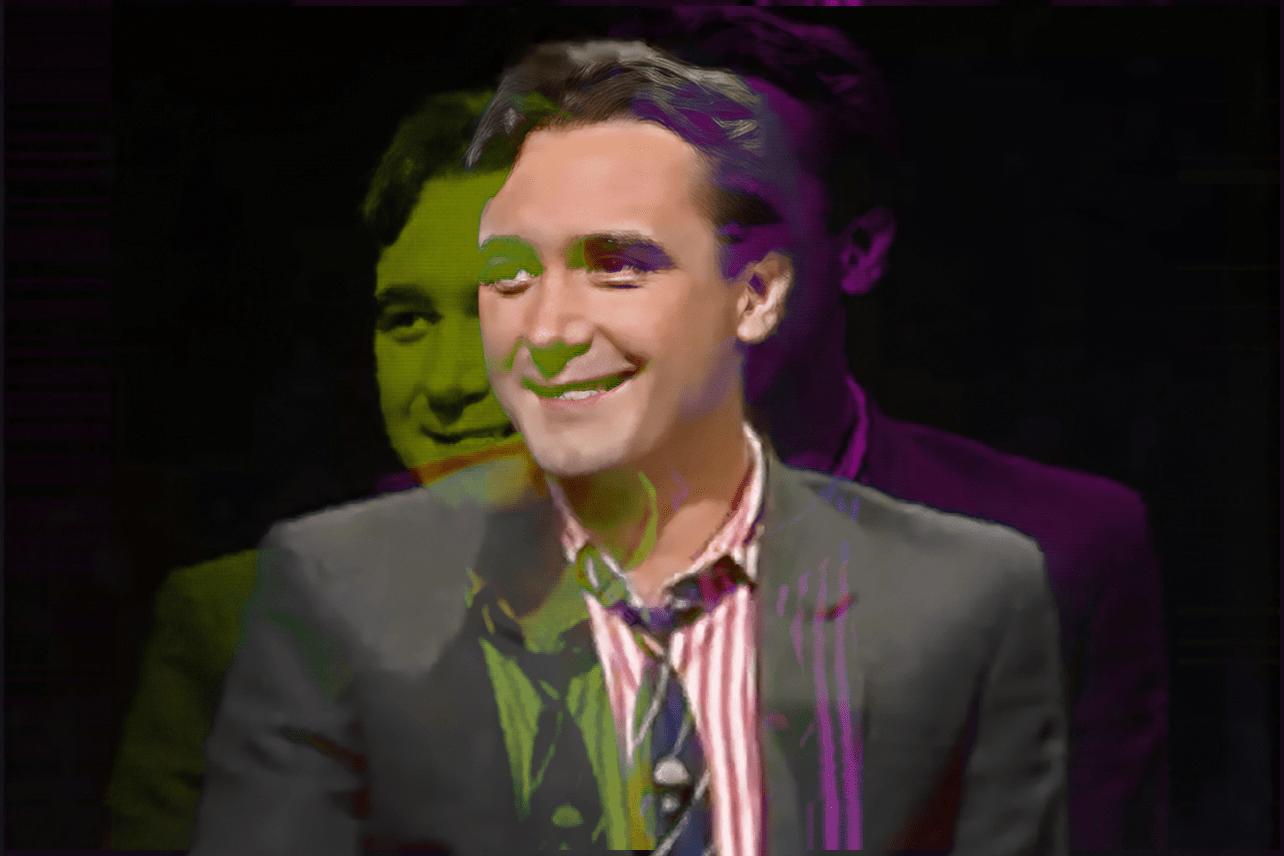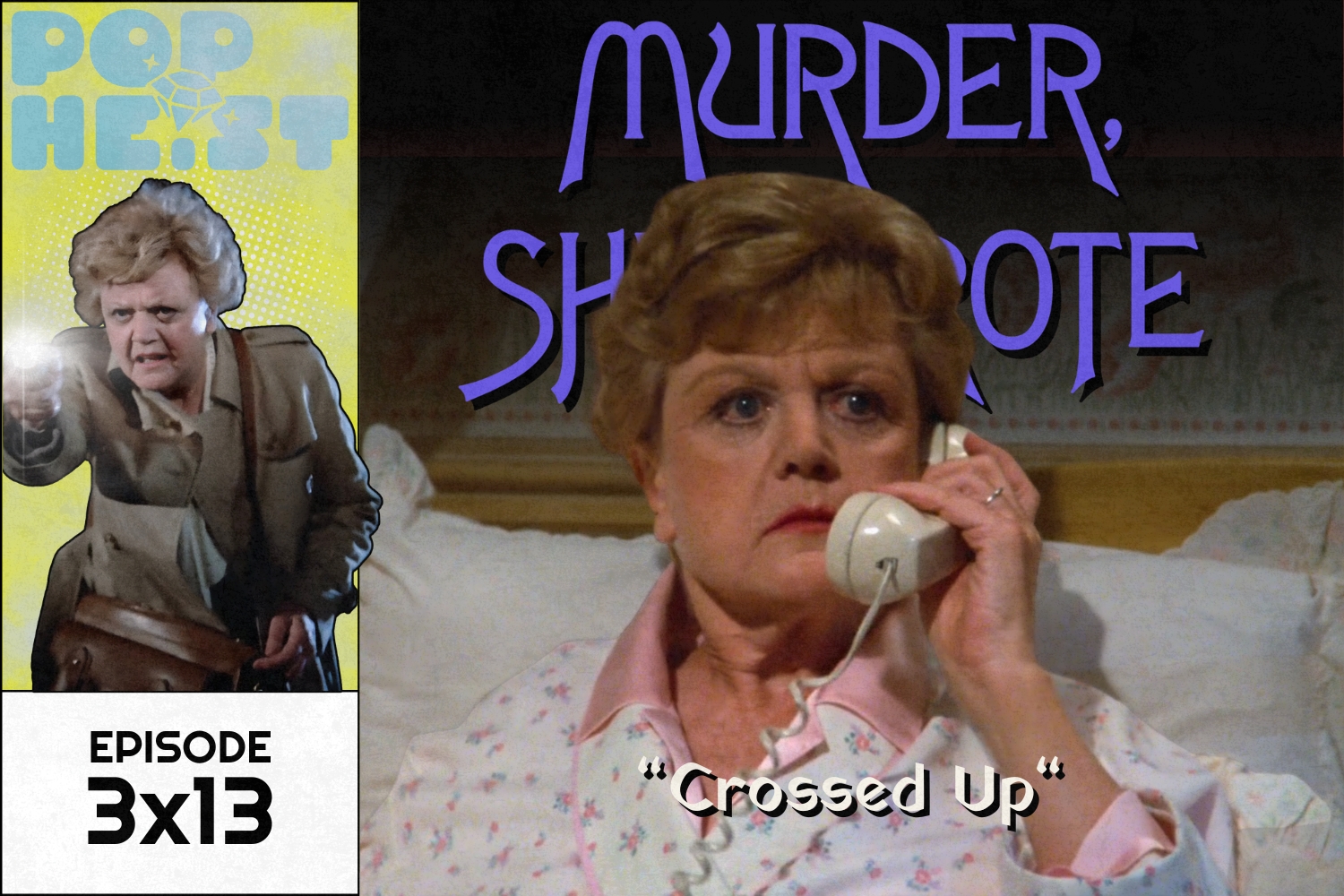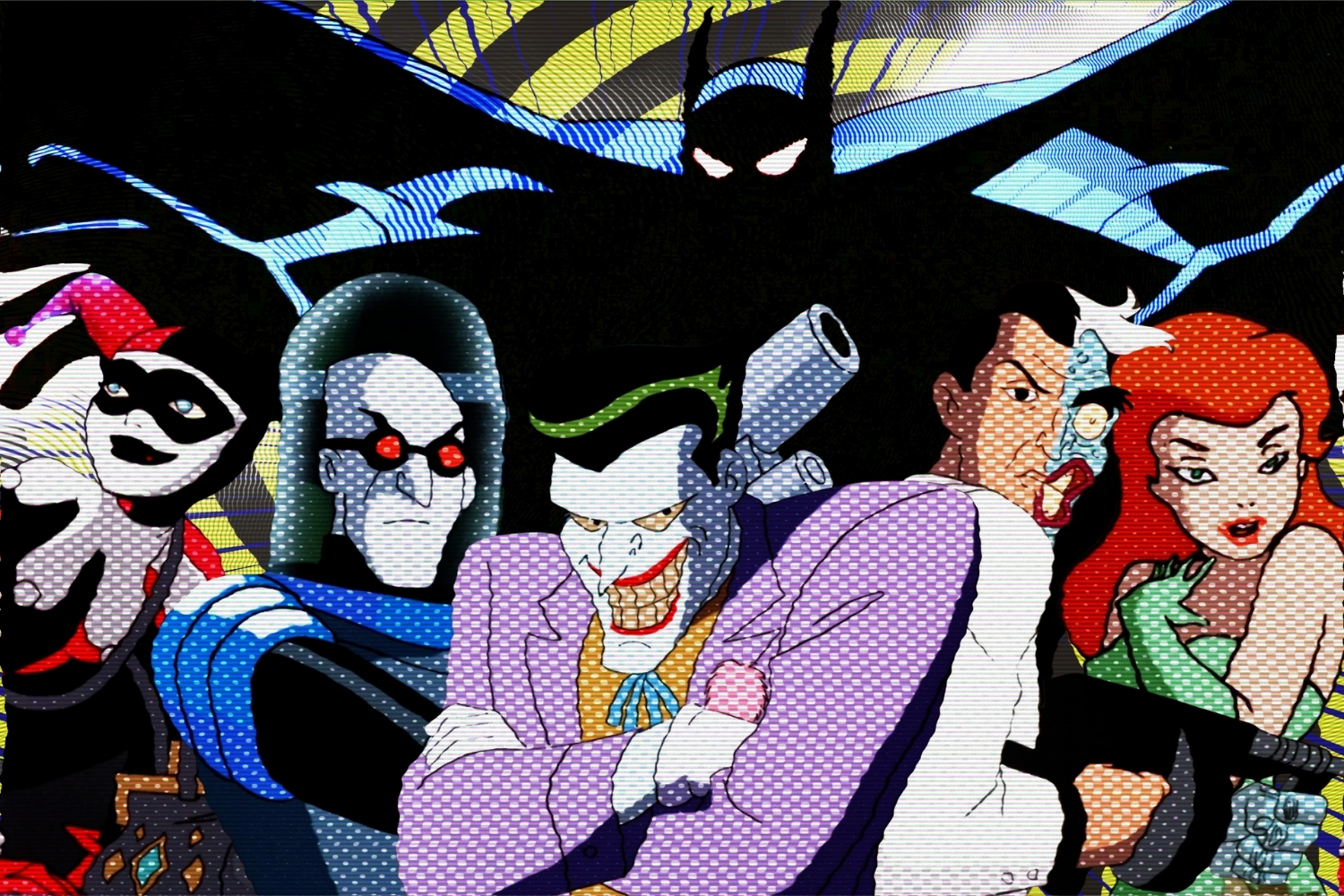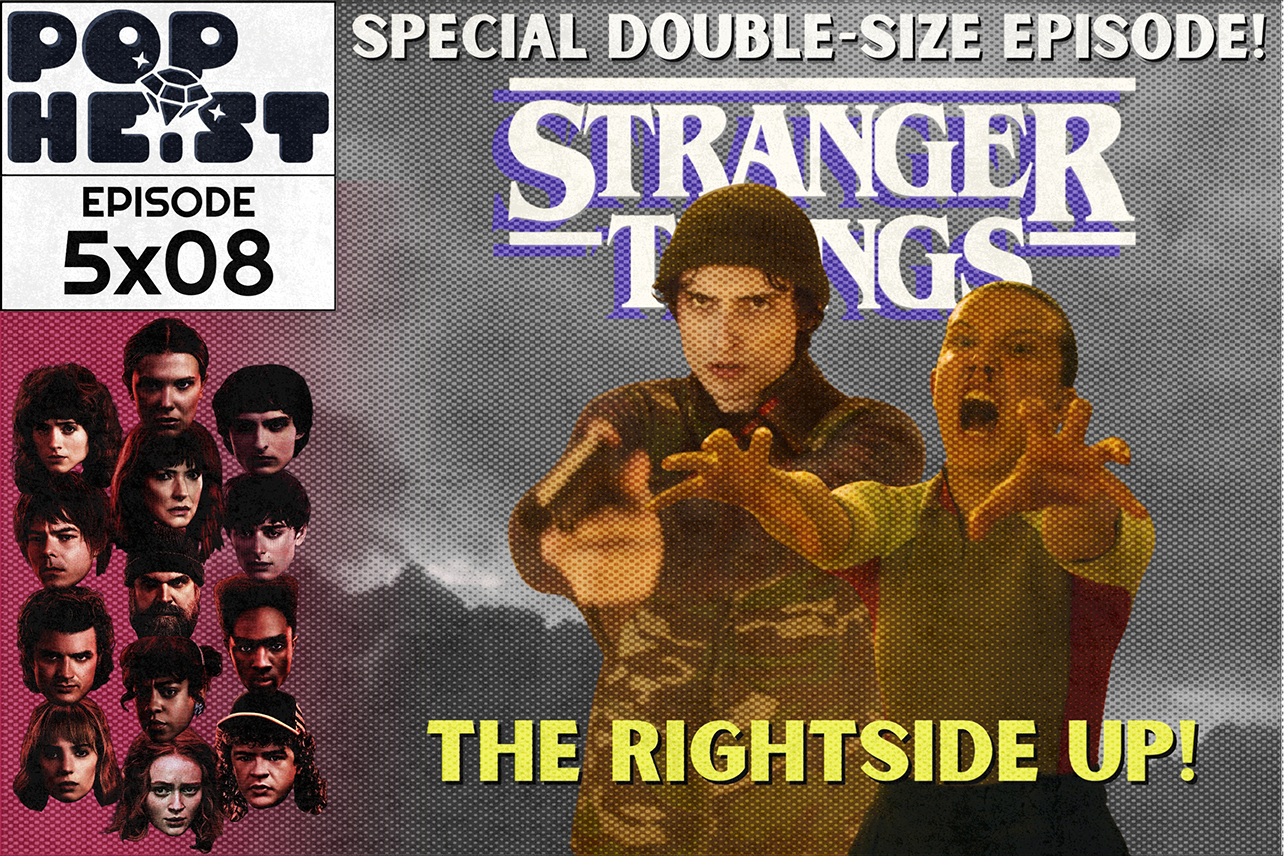We write about representation a lot, us TV critics and pop culture journalists. It's become something to champion, or even a box that a show or movie needs to tick. It's important, and we all know why it's important — but that "why" goes unsaid. What does representation really mean to me, the writer who writes about representation, be it in Drag Race or Marvel comics? To me, Brett White, Editor-in-Chief of Pop Heist, to me representation is and will always be Tony Slattery.
Tony Slattery died today, January 14, on my eighth wedding anniversary, at the age of 65 following complications from a heart attack. Professionally, this is a thing I should write about. Personally, this is something I can't write about — I don't have the strength to write about. But all of these circumstances — my gay wedding anniversary, my mental anguish — are themselves entwined with Tony Slattery and his legacy, a legacy that lives on through me, a mentally ill homosexual and erstwhile comedian.
So, let's talk about Whose Line Is It Anyway? — the UK version, the originator. That's the only reason that I, an American, know who Tony is. His constant appearances on British chat shows didn't make their way to PBS or Comedy Central, the only two ways that an American middle schooler could intake English television. And as Drew Carey's brightly colored adaptation of Whose Line hit it big on ABC, Comedy Central aired repeats of the UK version, all maroon and grainy and gray.
Whose Line was part of a wave of shows that transformed my brain in middle school, alongside Mystery Science Theater 3000, NewsRadio, Space Ghost Coast to Coast, Real World (and Road Rules), and the John Henson era of Talk Soup. Those shows were how I learned who I was, what I found funny — and because it was the late '90s and I was barely part of the America that was Online, those shows are all I had. I didn't have online discourse, not much. I didn't know half the references on MST3K, I didn't really know why Tami Roman got her jaw wired shut, and literally all of my knowledge about the queer community came from Jerry Springer clips on Talk Soup. Not great! I definitely didn't know I was gay, and I honestly don't even know if I really knew what being gay meant.
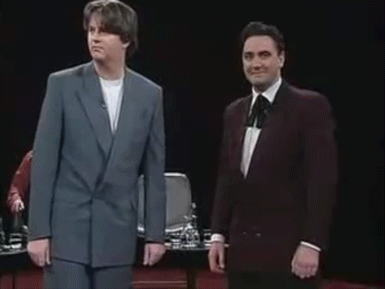
But I loved Tony Slattery. Instantly, immediately, viscerally — it was a torrid, one-sided, transatlantic love affair that engulfed my 14-year-old boy brain as I ravenously taped every episode of Whose Line just hoping to see more of Tony Slattery. At least, that's what it was in retrospect. At the time I just thought that I thought that Tony was funny. In reality, I felt him pulling a part of me — the real me — out of the closet, even if literally all the lights in the house would remain off for another seven years.
Let's talk about Tony, though, because — I mean, why did I warm myself by this gregarious persona being beamed into my bedroom TV? Whose Line is a fully improvised comedy show (I say "is" because odds are it's probably still on-air somewhere) where four performers are given prompts, usually ludicrous ones, and then act out whatever comes to mind. That's it. It's a show that depends on the rapid wit of the four bodies onstage. And there was no wit faster than Tony's.
Here was this short(er — the men on that show were all giants), ofttimes round, baby-faced scoundrel with a debonair slick of dark hair and an unruly forelock. He dove into everything, every scene, with the unearned bravado of Han Solo chasing after a squad of stormtroopers, screaming at the top of his lungs. He was fearless, showing no regard for the norms of broadcast television. He'd say the wrong thing, he'd go too far, like pulling his trousers down to flash a bit of bare thigh whilst improvising as a go-go dancer — and all of these antics would be followed by a cheeky grin, or a self-deprecating chuckle.
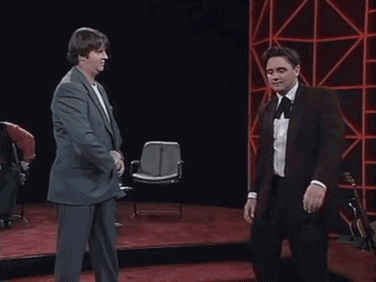
Tony was never the star. He wasn't Ryan Stiles or Colin Mochrie — who, yes, my fellow Americans, were also the stars of the UK version. Tony felt like a chaos agent — like when Janice would show up on Friends, or The Peeper on The Bob Newhart Show. He gleefully agitated the host, Clive Anderson, and pushed boundaries and buttons like a child who'd been told to absolutely not do that.
And he did all of this while being one of the best-dressed men in the UK. His wardrobe consisted of smart suits at first, paired with a western bow tie or a dashing turtleneck. He incorporated plaid trousers into his wardrobe, an item I still covet to this day. Then there were the leather jackets, some with fringe for some reason. He always looked stylish in his own way — different from the equally natty Greg Proops. Greg followed a formula (disco librarian, always wearing two pieces of a three-piece suit). Tony was unpredictable in appearance and wit.
This is what I fell in love with the summer before 9th grade. This was me, a gay teen seeing a brilliantly stylish, hilarious gay man on TV, one that I wanted to be — one that I could be. Except I didn't know Tony was gay, nor did I know that I was gay. I thought it was absolutely normal for a 14-year-old boy to join an AOL message board dedicated to Tony Slattery. Just me and a bunch of British women, aged 20-40. Yep, normal teen guy stuff in 1998.
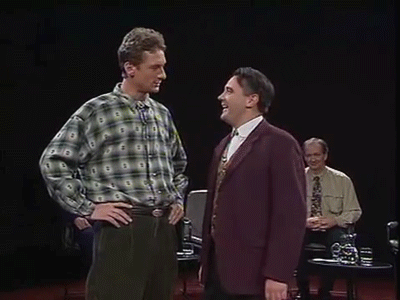
Despite my insatiable Slattery fandom, I learned very little about his private life. Who was Tony Slattery? I tried to watch as much of his filmography as I could find in America, which essentially amounted to the film Peter's Friends, found on the shelves at Hollywood Video. But the man himself was a mystery — until I learned about his mid-'90s nervous breakdown, the one where he locked himself in his apartment and also (legend has it) threw his furniture into the Thames. He would be diagnosed as bipolar, thus beginning a mental health journey; the 2020 documentary What's the Matter with Tony Slattery? is a wonderful, insightful watch.
But also, buried in whatever interviews or profiles I could find via AOL search or via my middle-aged message board lady friends (we were called Slatterettes, BTW), were rumors about Tony's love life. Whispers, really. I don't recall any article dwelling on it too much, or badgering Tony about it. I guess the mania and substance abuse were enough for the British tabloids back then. Why get into the gay thing? But still, Tony played it coy when it came to his romantic or sexual interests, fudging pronouns or indirectly hinting at, at the very least, a possible bisexuality.
What happens when your point of representation suddenly represents a part of you that you were not ready to see represented? I have a distinct memory of being in my family's college football-themed computer room (go Vols) and having a bit of a ... fandom crisis, after reading an inference towards Tony's queerness. I'd idolized this man, wanted to be this man, and this man might be gay? I now recognize this feel as a tinier version of the one I felt when I ultimately came out, years and years later. It was the teaser trailer for my gayness. Coming from a conservative, Southern Baptist upbringing, I had to figure out how to reconcile my adoration of this man with his potential sexuality.
I also had to figure out how to rein in my pubescent libido after seeing a photo of Tony in a wrestling singlet and hot red pumps.
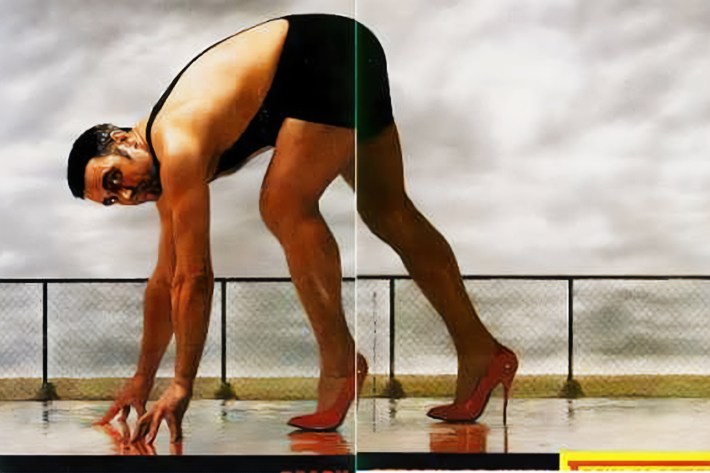
I still thought I was straight.
Years passed. I grew up. My interests shifted, as interests do. AOL gave way to AIM, and MySpace, and Facebook. I didn't come out until my senior year of college. I moved to New York City and started taking longform improv classes at the Upright Citizens Brigade Theatre. I spent my entire 20s doing improv comedy, weekly, sometimes daily, all across Manhattan (and by "all across" I mean Chelsea, lower Manhattan, and sometimes Long Island City). I dated men for the first time, hooked up with men, had relationships with men, and then met the man that I would marry.
And then, sometime around 2016, I remembered Tony Slattery. I watched a bunch of Whose Line clips on YouTube and ... there I was. I didn't see a man I wanted to be. I saw the man that I was. I saw my own improv style, I saw my style — I saw my queerness. And I'm not saying that I'm as funny as Tony or as iconoclastic in dress as Tony, but like, I could see myself. Also in late 2016 is when I finally started going to therapy and was eventually diagnosed with PTSD and started taking anti-anxiety and anti-depression meds. So, I don't know, there's that too.
But it wasn't until October 2017 that I finally, nearly 20 years after I first saw him, got confirmation from the man himself: "I'm not coming out. I was never in. I'm happily described as gay. I was never hung up about my sexuality."
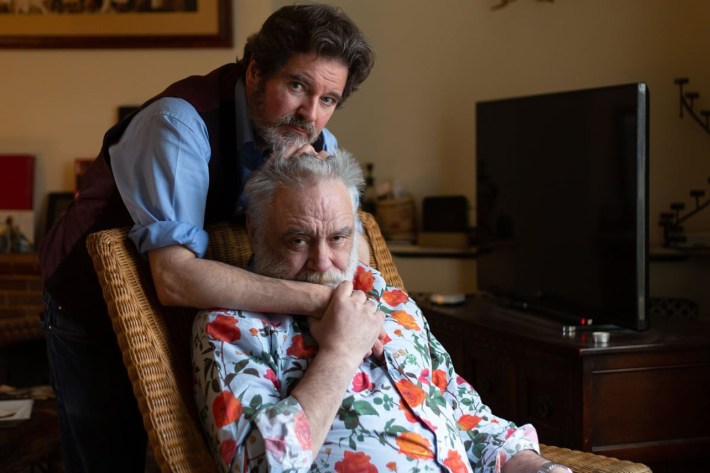
This — I was hung up about my sexuality. For a long time. I had to fight internalized homophobia, and I had to fight stereotypes and embrace some stereotypes. I had to become me. And queer people, we have to do all of that, sometimes with no solid foundation. We live in a culture where heterosexuality is assumed and encouraged in children. We are groomed to be straight. I did not even know what it was like to have a crush — one that I could identify clearly as a crush — until I was 21. The formative years of my life weren't a lie, but they weren't the whole truth, either.
But I had Tony. And I didn't know what that meant when I was a freshman in high school. But as an adult man? I finally got what that whole infatuation was: it was a gay kid looking up to a gay man, seeing himself, seeing possibilities, seeing a future — a future that I got to actually live.
And because this is when Tony got on Twitter, I actually got to tell him a heavily, heavily abridged version of this whole affair.
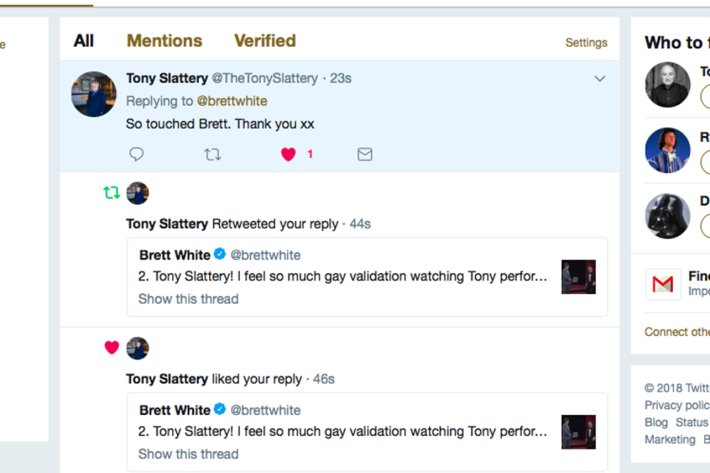
And this is what representation means to me, and it's why representation matters. Just watching reruns of Whose Line on a weekend afternoon changed the trajectory of my life. Sometimes that's all it takes, just a little dapper Tasmanian devil spinning around, slinging zingers and being himself made me know who I am.
Thank you, Tony Slattery. And I swear, I'm finally going to buy some plaid trousers, in your honor.
